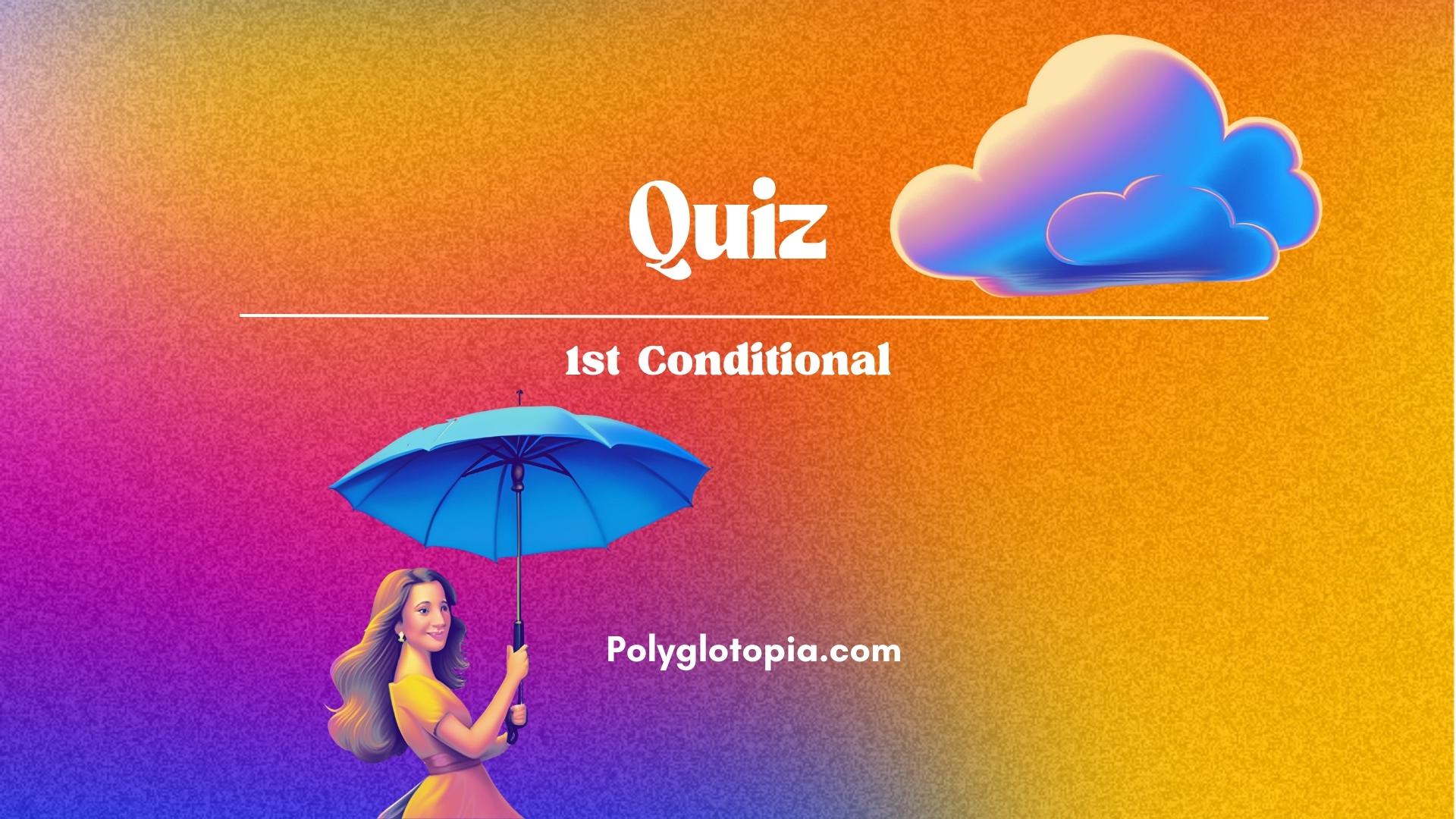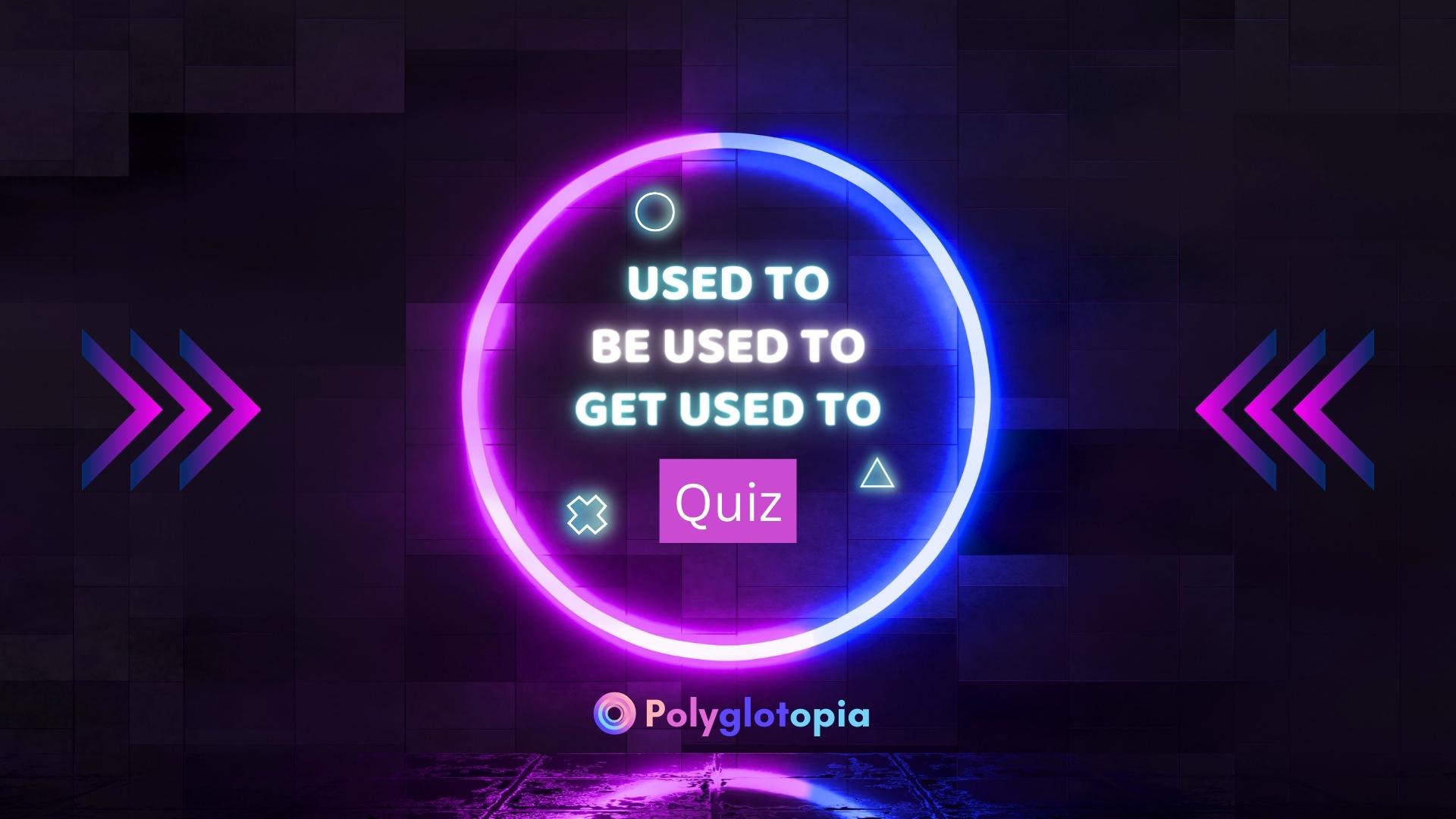Check your knowledge on the use of the First Conditional in English with this 10-question multiple-choice quiz. If you need a quick revision before doing the test, have a look at the grammar explanation first. You can find information about the form and the use of 1st Conditional, as well as examples.
First Conditional: Grammar explanation
Meaning/Use
We normally use the First Conditional to refer to a situation that is possible in the future and its results.
For example:
If I study hard, I will pass this exam.
(Possible situation in the future)
I will go for a walk if the weather is fine tomorrow.
(Possible situation in the future)
Form
This is how you form the 1st conditional:
If I study hard, I will pass this exam.
If clause (Condition), Main clause (Result)
If +Present Simple, Future simple (Subject+ will +base form of the verb)
Of course, it can be the other way round:
I will go for a walk if the weather is fine tomorrow.
Main clause (Result) if clause (Condition)
Future simple (Subject+ will +base form of the verb) if +Present Simple
As you can notice, there is no comma between the sentences in the second case.
1st Conditional tip
A trick to form the 1st conditional easily is to spot the if-clause. Once you have that, you know that you need to use the Present Simple for the if- clause and the Future Simple for the result clause.
Ready for the quiz?
First Conditional Exercises: Quiz
Congratulations, Quiz Completed.
Questions : 10
Wrong Answers :
Right Answers :
Grade : %
Score : / 10
Question : / 10
Please Pick An Option
First Conditional Exercises: Fill the gap
If you found the multiple-choice quiz easy, you might want to try this 1st Conditional fill the gap exercise:
- If she (study) for the test, she (get) a good grade.
- We (have) a picnic in the park if it (be) sunny this weekend.
- If they (finish) their project on time, they (earn) praise from the boss.
- I (leave) for work on time if I (find) my keys.
- He (have) trouble sleeping if he (eat) too much before bedtime.
- You (feel) more energetic if you (exercise) regularly.
- If the team (win) the championship, they (celebrate) all night.
- We (go) for a hike if the weather (be) nice next weekend.
- If she (miss) the bus, she (be) late for the meeting.
- You (be) more alert later if you (take) a nap in the afternoon.
- If she studies for the test, she will get a good grade.
- We will have a picnic in the park if it is sunny this weekend.
- If they finish their project on time, they will earn praise from the boss.
- I will leave for work on time if I find my keys.
- He will have trouble sleeping if he eats too much before bedtime.
- You will feel more energetic if you exercise regularly.
- If the team wins the championship, they will celebrate all night.
- We will go for a hike if the weather is nice next weekend.
- If she misses the bus, she will be late for the meeting.
- You will be more alert later if you take a nap in the afternoon.
Form variations
For those interested in the details, have a look at these variations. Sometimes instead of if, we can have unless, which means if not.
For example:
I won't work unless I get paid.
(If I don't get paid, I won't work)
Finally, instead of Future Simple, we can have different modal verbs in the result clause (can, might etc).
For instance:
I cannot help you if you don't explain what happened.



